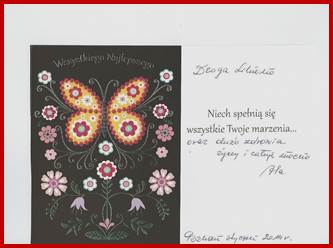
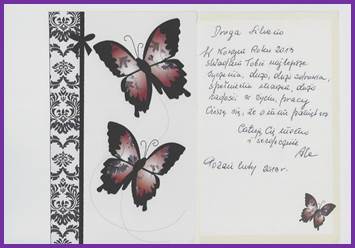
She wrote how glad and happy she was that I still remembered her. I will always remember her.
And now, my thoughts and prayers are with her. Rest in Peace, my dear Ala.
In memory of those who left us unknown and forgotten and in dedication to those still amongst us
ALEKSANDRA IMALSKA (1933 - 2014) at Poznań Opera Grand Theater in Poland
I lost my dear colleague and friend. During our studies at the Poznań Music Academy, Ala, as we all knew her, already performed on stage at Poznań Opera Grand Theater (Teatr Wielki). She was tall, attractive and passionate with a strong, well-rounded voice of mezzo-soprano. We giggled, laughed and flirted with boys together. We have had many delightful memories. In 1972, I was appointed principal harpist at the Imperial Opera House in Tehran. Finally, after many years, I traveled from America to Poland to witness the velvet revolution spreading across Eastern Europe.
On February 23, 1990 (as I noted in my diary), I visited Ala in her apartment at Poznań Osiedle Jana III Sobieskiego. Since then, we kept in touch by sending cards and some occasional greetings. During my last summer’s visit with my Mother in Poznań, I spoke with Ala on the phone. She seemed to be perfectly fine although she was a bit sick, having a cold and flu. We promised to see each other again very soon. I received her last card in January 2014. A few weeks later, after falling at home, she had died on February 26, 2014, at Poznań Lutycka Hospital.


She wrote how glad and happy she was that I still remembered her. I will always remember her.
And now, my thoughts and prayers are with her. Rest in Peace, my dear Ala.
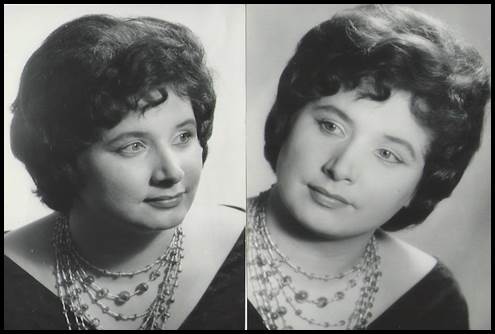
Aleksandra Imalska in her youth. Poznań, 1950s.
Photo Credit: Grażyna Wyszomirska
Courtesy Liliana Osses Adams collection
Aleksandra Imalska was born on February 10, 1933, in Kalisz, which is one of the oldest cities of the Greater Poland Voivodeship. She began her early music education at the Music Conservatory in Kalisz and later continued at the State High School of Music (Państwowa Średnia Szkoła Muzyczna). She studied voice with Prof. Janina Cygańska and Wanda Falak-Zielińska. In 1961 she graduated from Poznań Music Academy (formerly Państwowa Wyższa Szkoła Muzyczna) with Master of Arts degree. While still a student, she débuted on November 21, 1959, in Jadwiga (Hedwig’s) aria from Stanisław Moniuszko’s The Haunted Manor during the Gala Concert for the 40th Anniversary of Poznań Opera under the baton of then – Music Director Zdzisław Górzyński (1954-1963).
Thus began her life-long professional career as soloist with the Poznań Opera House at Fredry Street, a gracious neo-classical façade with Pegasus atop, opened in 1910 as an opera theatre affiliated to the Linden Opera in Berlin.
For more on Poznań Opera, please read: http://www.opera.poznan.pl/page.php/2/0/show/15/
Over the years, the promising operatic début of Aleksandra Imalska and her extraordinary vocal and acting capability were recognized by most critics and established her reputation as an exceptional artist who demonstrated profound dedication to the art of opera by creating numerous major roles such as Carmen, Olga, Konchakovna, Eboli, Azucena, Mistress Quickly, Marfa, Ulrica, Ortrud, Brangäne, Amneris, and enthusiastically welcomed as Preziosilla at the Komische Oper, created by Walter Felsenstein in Berlin.
Aleksandra Imalska chronology of selected singing roles and artistic activities:
1960, January 17, Poznań Opera presented 1948 revival (conducted by Dir. Zygmunt Latoszewski) of Tchaikovsky’s Eugene Onegin in the role of Olga,Tatyana’s sister sung by Krystyna Jamroz. Two rotating casts included: Henryk Guzek/Jerzy Sergiusz Adamczewski (Onegin), Marian Kouba/Adolf Ćwieczkowski (Lenski), Henryk Łukaszek/Józef Machalla (Prince Gremin), Maria Didur-Załuska (Filippyevna); Edwin Kowalski (conductor), Karol Urbanowicz (stage director), Stanisław Jarocki (set and costumes), and Bohuslav Stančak (choreography).
There were notable Polish performances of Olga sung by Antonina Kawecka, Krystyna Szostek-Radkowa, Zofia Chwoyka-Charłampowicz, Krystyna Kostal, Anna Malewicz-Madey, and of Tatyana sung by Ewa Bandrowska-Turska, Maria Fołtyn, Krystyna Szczepańska, Barbara Nieman, Hanna Lisowska, and Jadwiga Romańska.
1960, March 27, Poznań Opera premièred Witold Rudziński’s The Commandant of Paris (“Komendant Paryża”),
3 act opera, composed in 1958. The libretto by Tadeusz Marek [a.k.a. Tadeusz Żakiej] was based on a heroic upraising of the Paris Commune under General Jarosław Dąbrowski, who was one of a few capable commanders of the National Guard to launch an offensive towards the army in Versailles, and who died from the wounds received on the barricades. (Should not be confused with the General Jan Henryk Dąbrowski of Polish Legions in Italy, whose song became the national anthem). The cast included Aleksandra Imalska in the role of Pelagia, Dąbrowski’s wife, opposite Stefan Budny as General Dąbrowski, conducted by Antoni Wicherek, in stage direction by distinguished Wiktor Brégy, choreographed by Zygmunt Patkowski, and in the stage setting by Stefan Janasik.
1961, January 22, Poznań Opera premièred Jan Ignacy Paderewski’s Manru with Janina Rozelówna as Ulana, the peasant girl. The cast included Felicja Jankowiak, Wanda Roessler-Stokowska and Aleksandra Imalska as Jadwiga, Ulana’s mother. The title role of Manru was performed with a rotating cast of Wacław Domieniecki/Stanisław Romański/Henryk Kustosik, under the baton of Zdzisław Górzyński, in stage direction by Wiktor Brégy, with set and costumes designed by Stanisław Jarocki, and choreographed by Stanisław Miszczyk.
1961, November 6, Poznań Opera presented 1953 revival (conducted by Dir. Walerian Bierdiajew) of Borodin’s Prince Igor in the role of Konchakovna, featured a rotating cast of singers: Stefan Budny/Jan Czekay/Władysław Malczewski (Prince Igor), Antonina Kawecka/Janina Rozelówna (Yaroslavna, Igor’s wife), Marian Kouba/Józef Prząda/Ivan Christof (Vladimir Igorevich), Albin Fechner/Henryk Łukaszek (Prince Vladimir Galitsky), Henryk Łukaszek/ Andrzej Kizewetter/Józef Machalla (Konczak); Marian Szczęsnowski (conductor), Adolf Popławski (stage director), Stanisław Jarocki (scenery), and Stanisław Miszczyk (choreography).
There were notable Polish performances of Konczakovna sung by Felicja Kurowiak, Emma Szabrańska, Krystyna Kostal, Janina Romańska, and Ewa Podleś.
1961, December 30, Poznań Opera premièred Gian Carlo Menotti’s The Consul in the role of Vera Boronel, featuring Irena Winiarska (Secretary), Krystyna Jamroz/Antonina Kawecka (Magda Sorel), Władysław Malczewski (Jan Sorel), Wanda Roessler-Stokowska (Matka), Anna Wolanowska (Anna Gomez), Lech Koperny (Assan), Józef Katin (Nika Magadoff), Józef Machalla (Mr. Kofner); Zdzisław Górzyński (conductor), Józef Grubowski (stage director), and Zbigniew Kaja (set design).
1962, April 8, Poznań Opera presented Gounod’s Faust , the 1946 revival under Dir. Zygmunt Wojciechowski with esteemed Karol Urbanowicz as Méphistophélès and Maria Janowska-Kopczyńska as Marthe Schwerlein, Józef Woliński as Faust, and Halina Dudicz-Latoszewska as Marguerite. The 1962 double cast in the principal roles included: Marian Kouba/Józef Prząda (Faust), Jadwiga Myszkowska/Anna Wolanowska (Marguerite), Alicja Kurowiak/Wanda Roessler-Stokowska and Aleksandra Imalska as Marthe, with guest appearances of Bernard Ładysz as Méphistophélès, and Władysław Malczewski/Stefan Budny/Albin Fechner (Valentin); Edwin Kowalski (conductor), Józef Grubowski (stage director), Stanisław Jarocki (scenery), choreographed by Kazimiera Patkowska, including the ballet scenes of Walpurgis Night.
1962, August 19, Poznań Opera presented 1936 revival (under Zygmunt Latoszewski conducting) of the opera-ballet in 4 acts, composed in 1928 by Witold Maliszewski’s The Mermaid (“Syrena”), based upon Hans Christian Andersen’s tale, in the role of a Fairy; Władysław Słowiński (conductor), Wiktor Brégy (stage director), Stanisław Jarocki (set and costumes), and Eugeniusz Papliński (choreography).
The Poznań Opera, referred to as Teatr Wielki or the Grand Theater, named after famous Polish composer Stanisław Moniuszko, was the first opera house in Poland to begin its activities after WWII with the first performance to be heard in the ruined country. On June 2, 1945, Dir. Zygmunt Wojciechowski presented Karol Kurpinski’s opera in 3 acts, “Superstition, or Cracowians and Mountaineers” (Zabobon, albo Krakowiacy i Górale). Seven months later, on September 19, 1946, Poznań Opera’s Dir. Zygmunt Latoszewski presented “The Haunted Manor” (Straszny Dwór) by Stanisław Moniuszko, in stage direction by Karol Urbanowicz and with Maria Janowska-Kopczyńska as Cześnikowa. On May 20, 1952, the Poznań Opera presented Moniuszko’s The Haunted Manor under Dir. Walerian Bierdiajew, followed by the first ever Polish opera company artistic tour in USSR (December 21, 1952 - January 12, 1953), presenting Moniuszko’s Halka and The Haunted Manor with Antonina Kawecka as Halka and Cześnikowa, including Mussorgsky’s Boris Godunov, and Tadeusz Szeligowski’s The Scholar’s Revolt (Bunt Żaków). During 1953-1954, the first ever excerpts from The Haunted Manor were recorded, on Muza Vinyl Records under legendary Walerian Bierdiajew with some of Poland’s most respected singers, Bogdan Paprocki, Edmund Kossowski, Marian Woźniczko, Henryk Łukaszek, Radzisław Peter, Maria Didur-Załuska, Barbara Kostrzewska, and Antonina Kawecka.
1962, September 16,Poznań Opera reprised The Haunted Manor with Aleksandra Imalska as Cześnikowa.
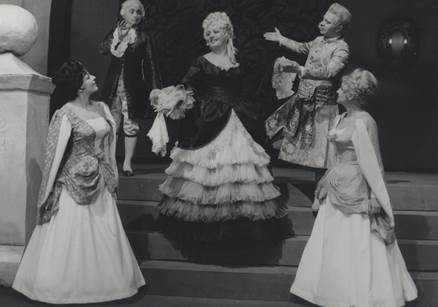
Aleksandra Imalska as Cześnikowa. Poznań Opera Archive. Photo Credit: Grażyna Wyszomirska
The cast included (from left to right): Krystyna Pakulska (Hanna), Jerzy Walczak (Damazy) Aleksandra Imalska (Cześnikowa), Edward Pawlak (Skołuba), and Bożena Karłowska (Jadwiga), and (not pictured), Marian Kouba (Stefan), Andrzej Saciuk (Zbigniew), Władysław Malczewski (Miecznik); Edwin Kowalski and Marian Szczęsnowski shared the baton, in collaboration with Józef Grubowski (stage director), Wiesław Lange (scenery), Mira Kucnerowicz (choreography), and Wiktor Buchwald (chorus master).
1962, October 1-9. During an artistic tour in Belgrade and Zagreb, Poznań Opera presented Stanisław Moniuszko’s
The Haunted Manor, Paderewski’s Manru, Gounod’s Faust, and Witold Maliszewski’s The Mermaid. Aleksandra Imalska was applauded as Cześnikowa (Moniuszko), Jadwiga (Paderewski), Marthe (Gounod), and as a Fairy (Maliszewski).
1963 Participant and 3rd prize-winner at the International Bel Canto Vocal Competition in Liège. Receiving a special recognition for her interpretation of the Countess aria from Tchaikovsky’s Pique Dame (The Queen of Spades). Further recipient of the bronze medal award at Queen Elizabeth Voice Competition in Brussels, Belgium.
1963, March 23, Poznań opera 1947 revival of Giuseppe Verdi’s Aida in the role of Amneris, including Alicja Dankowska/Halina Chocieszyńska (Aida), Antonina Kawecka/Felicja Kurowiak (double cast as Amneris), Wacław Domieniecki (Radamès), Henryk Łukaszek/Edward Kmiciewicz (Ramfis), and Andrzej Saciuk (Amonasro); Edwin Kowalski (conductor), Józef Grubowski (stage director), Zbigniew Kaja (set design), Zygmunt Szpingier/Zbigniew Kaja (costumes), and Witold Borkowski (choreography).
(On a personal note: I played harp that evening under the baton of Edwin Kowalski).
1963, November 16, Poznań Opera presented 1934 revival of Ludomir Różycki’s Eros and Psyche in double role as Ksieni and Arete with Robert Satanowski at the podium, who was appointed the General and Artistic Director in March 1, 1963. Two rotating casts included: Alicja Dankowska/Janina Rozelówna (Psyche), Marian Kouba/Stanisław Romański (Eros), Aleksandra Imalska/Irena Winiarska (Arete), Aleksandra Imalska (Ksieni), in stage production by Maryna Broniewska and choreographed by Conrad Drzewiecki, in scenography by Stanisław Bąkowski.
1964, February 29, Poznań Opera premièred Benjamin Britten’s Let’s Make an Opera in the leading role of Miss Baggott, supported by solo singers, such as: Lubomira Hankiewicz, Bożena Karłowska, Dorota Seremak, Edward Kmiciewicz, Bogdan Ratajczak, and Andrzej Kizewetter; Mieczysław Dondajewski (conductor), Jerzy Sergiusz Adamczewski (stage director) and Zbigniew Bednarowicz (production design).
1965, June 13, Poznań Opera produced Dmitri Shostakovich’s Katerina Izmailova, in revised version of “Lady Macbeth of the Mtsensk District”, under the baton of Robert Satanowski, in stage direction by Danuta Baduszkowa and with scenery and costumes designed by Stanisław Bąkowski. The cast included, among others: Alicja Dankowska and Antonina Kawecka as Katerina Izmailova, Aleksandra Imalska as Sonyetka, Henryk Łukaszek as Boris Izmailov, Józef Prząda as Zinoviy, and Stanisław Romański as Sergei, supported by the company’s soloists, such as: Edward Kmiciewicz, Józef Katin, Bogdan Ratajczak, Józef Machalla, Lech Koperny, Stefan Budny, Jan Czekay, Irena Winiarska, Stefania Benk, Krystyna Czerwińska, and Wanda Jakubowska as Aksinya.
Robert Satanowski’s successful presentation of Katerina Izmailova proved to be just the beginning of ambitious choices of repertoire. During his directorship (1963-1969), the company introduced Richard Wagner’s Tannhäuser and Tristan and Isolde, Verdi’s Troubadour, Masked Ball and Attila, Tchaikovsky’s Pique Dame, Puccini’s Tosca and La Bohème, Mozart’s Die Zauberflöte, Beethoven’s Fidelio, Auber’s Fra Diavolo, and rarely performed Sándor Szokolay’s Blood Wedding, including rarities, such as Rolf Liebermann’s The School of Wives, and Antonio Salieri’s Axur, King ofOrmus. In 1969 Robert Satanowski bid farewell to the Poznań Opera House with the representation of Mussorgsky’s Khovanshchina. I should mention that all productions at the company were double – or more cast, were photographed by Grażyna Wyszomirska, and performed in Polish language, translated by the group of excellent librettists, poets and writers, to name just a few: Jerzy Żuławski, Roman Brandstaetter and Bogdan Ostromęcki.
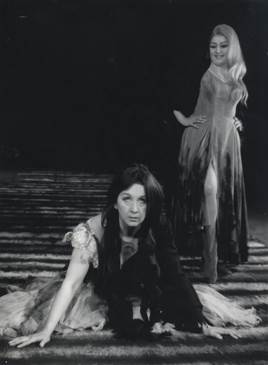
Dmitri Shostakovich’s Katerina Izmailova, Poznań Opera, 1965
Antonina Kawecka as Katerina and Aleksandra Imalska as Sonyetka
Poznań Opera Archive. Photo Credit: Grażyna Wyszomirska
1966, April 24, Poznań Opera presented 1959 revival of Verdi’s Un Ballo in Maschera in the role of Ulrica, under the baton of Robert Satanowski, in stage direction by Wiktor Brégy. The cast included: Marian Kouba/Józef Prząda (Riccardo), Albin Fechner/Władysław Malczewski (Renato) and Krystyna Jamroz/Antonina Kawecka (Amelia).
There were notable Polish performances of Amelia sung by Hanna Rumowska-Machnikowska, Hanna Lisowska, Bożena Betley-Sieradzka, Bożena Kinasz-Mikołajczak, Jadwiga Gadulanka, Barbara Zagórzanka, Maria Vardi, Janina Rozelówna, and of Ulrica sung by Krystyna Szostek-Radkowa, Krystyna Szczepańska, Irena Ślisarska, Maria Olkisz, Anna Węgrzyn-Śliwińska, and Wanda Bargielowska.
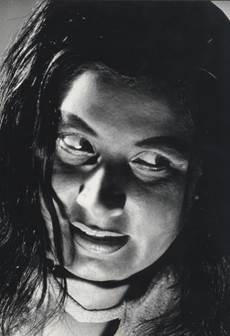
Verdi’s A Masked Ball (Un Ballo in Maschera), Poznań Opera, 1966
Aleksandra Imalska as Ulrica. Poznań Opera Archive
1966, September 10, Poznań Opera inaugurated its artistic season with the revival production of Verdi’s The Troubadour, premiered on March 6, 1965, in the role of Azucena. The cast included, among others: Jerzy Kulesza (Count di Luna), Alicja Dankowska (Leonora), Stanisław Romański (Manrico), and Andrzej Kizewetter (Ferrnando); Robert Satanowski (conductor), Marek Okopiński (stage director), and Stanisław Bąkowski (scenography).
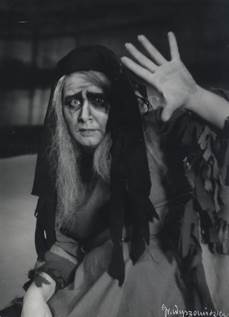
Verdi’s The Troubadour (Il Trovatore), Poznań Opera, 1965/1966
Aleksandra Imalska as Azucena. Poznań Opera Archive
There were notable Polish performances of Azucena sung by Zofia Czepielówna-Schiller, Stefania Toczyska, Jolanta Podlewska, Krystyna Szczepańska, Krystyna Szostek-Radkowa, Maria Olkisz, and of Leonora sung by Antonina Kawecka, Krystyna Jamroz, Hanna Rumowska-Machnikowska, Bożena Kinasz-Mikołajczak, Barbara Kubiak, Barbara Zagórzanka, and a highly acclaimed Ada Sari, dubbed the Queen of coloratura.
1967, November 5, Poznań Opera premièred Tchaikovsky’s Pique Dame in the role of the Countess, under the baton of Robert Satanowski. She also sang Polina and Daphnis. Two rotating casts of singers included: Roman Węgrzyn/Marian Kouba (Herman), Albin Fechner/Henryk Guzek (Count Tomsky), Jan Czekay/Marian Kondella (Prince Yeletsky), Józef Prząda/Adolf Ćwieczkowski (Chekalinsky), Antonina Kawecka/Bożena Karłowska (Liza); Stanisław Brejdygant (stage director), Zofia Wierchowicz (set design), and Teresa Kujawa (choreography).
1967, December 31, Poznań Opera presented Daniel Auber’s Fra Diavolo in the role of Lady Pamela, opposite Sławomir Żerdzicki (Fra Diavolo), Krystyna Pakulska (Zerline), Edward Kmiciewicz (Lord Cockburn), and Józef Katin (Beppo); Mieczysław Dondajewski (conductor), Sławomir Żerdzicki (stage director), Stanisław Bąkowski (scenery), and Teresa Kujawa (choreography).
1968, May 17, Poznań Opera reprised Stanisław Moniuszko’s The Haunted Manor in the role as Cześnikowa, under Robert Satanowski, lined-up with leading singers of the company; Sławomir Żerdzicki (stage director),
Jan Kosiński (set design), Barbara Jankowska (costume design), and Conrad Drzewiecki (choreography).
1968, June 1-10. During an artistic tour in Italy at Vicenza and Genoa, Poznań Opera presented Moniuszko’s The Haunted Manor and Tchaikovsky’s Pique Dame with Aleksandra Imalska as Cześnikowa and the Countess.
1968, December 15, première representation at Poznań Opera of Richard Wagner’s Tristan and Isolde in the role of Brangäne, featured Antonina Kawecka (Isolde), Stanisław Romański (Tristan), Jan Czekay (Kurwenal), Józef Prząda (Melot), and Andrzej Kizewetter (Marke); Robert Satanowski (conductor and stage director) and Zofia Wierchowicz (production design).
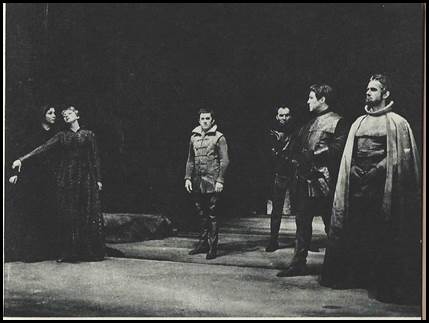
Richard Wagner’s Tristan and Isolde at Poznań Opera, 1968
(From left to right) A.Imalska, A.Kawecka, S.Romański, J.Czekay, J.Prząda, A.Kizewetter
Source: Poznań Opera 1919-1969. JerzyWaldorff’s Edition, Poznań, 1970
1969, March 23, Poznań Opera presented The Blood Wedding, opera in 3 acts by Sándor Szokolay (based upon the play by Frederico Garcia Lorca) in the role of The Mother of the Groom, featured: Adolf Ćwieczkowski (The Groom), Krystyna Kujawińska (The Bride), Edward Kmiciewicz (The Father of the Bride), Sławomir Żerdzicki (Leonardo), and Barbara Zagórzanka (Leonardo’s wife); Mieczysław Dondajewski (conductor), Jerzy Żegalski (stage director), Andrzej Sadowski (scenery), and Teresa Kujawa (choreography).
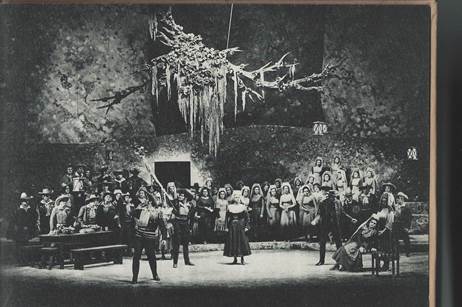
Sándor Szokolay’s Blood Wedding, Poznań Opera, 1969
(At the center) Aleksandra Imalska as The Mother of the Groom
Source: Poznań Opera 1919-1969. Jerzy Waldorff’s Edition, Poznań, 1970
1969, May 7-11. Poznań Opera’s artistic tour in Liège, Belgium. The repertoire included Moniuszko’s The Haunted Manor and Tchaikovsky’s Pique Dame. Aleksandra Imalska was applauded as Cześnikowa and the Countess.
1969 Awarded Gold Cross of Merit Medal for exceptional contribution to the arts and Polish society.
1969, October 12, Poznań Opera première representation under Robert Satanowski of Modest Mussorgsky’s Khovanshchina in the role of Marfa. The cast included: Edward Kmiciewicz (Prince Igor Khovansky), Stanisław Romański (Prince Andrey Khovansky), Sławomir Żerdzicki (Prince Vasiliy Golitsin), Andrzej Kizewetter (Dosifey),
Anna Wolanowska (Susanna), and Józef Katin (Scrivener); Sławomir Żerdzicki (stage director), Teresa Kujawa (choreography), and Zofia Wierchowicz (scenography).
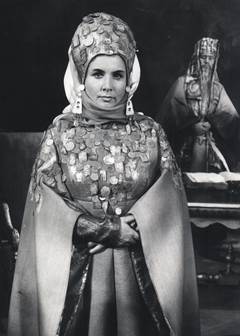
Mussorgsky’s Khovanshchina at Poznań Opera, 1969
Aleksandra Imalska as Marfa. Poznań Opera Archive
1970, May 9, NATIONAL OPERA - The Grand Theatre in Warsaw: Guest appearances as Azucena in Verdi’s The Troubadour opposite Andrzej Hiolski, Bernard Ładysz, Roman Węgrzyn in leading roles, under the baton of Antoni Wicherek with Hanna Rumowska-Machnikowska as Leonora.
1970, November 15, Poznań Opera premièred Verdi’s Don Carlos in the role of Eboli, sung in the original version.
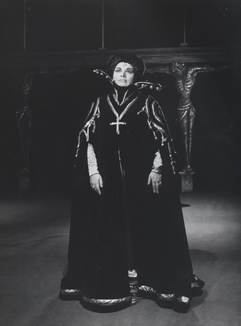
Aleksandra Imalska as Eboli in Verdi’s Don Carlos, Poznań Opera, 1970
“She won the audience over with the might and splendor of her voice.”
Source: OPERA magazine, September 1971, p. 62
The Poznań Opera premièred Don Carlos under the new Artistic Director Mieczysław Nowakowski, who led the company for the next three years (1969-1972), and who broke with the tradition to perform opera in Polish language. Actually, the company produced two versions with two different casts, dated: November 15, 1970 (Italian version), and January 17, 1971 (Polish version). The original Italian version under the baton of Mieczysław Nowakowski featured: Henryk Łukaszek (Philip II), Stanisław Romański (Don Carlos), Andrzej Kizewetter (Grand Inquisitor), and Krystyna Kujawińska (Elizabeth of Valois), in stage production and scenography designed by Ladislav Stroš.
(In Polish version the role of Princess Eboli was sung by Zofia Baranowicz).
1971, December 19, Poznań Opera presented 1951 revival of Bizet’s Carmen in the title role of Carmen.
The rotating casts included, among others: Marian Kouba/Stanisław Romański (Don José), Jan Czekay/Albin Fechner (Escamillo), Marian Kondella/Adolf Ćwieczkowski (Zuniga and Moralès), and Barbara Zagórzanka/Krystyna Kujawińska (Micaëla); Mieczysław Nowakowski (conductor), Klaus Kahl (stage director), Jochen Hasselwander (scenery), and Henryk Konwiński (choreography). Polish version translated by Wictor Brégy.
There were notable Polish performances of Carmen sung by Antonina Kawecka, Emma Szabrańska, Ewa Werka, Zofia Baranowicz, Krystyna Szostek-Radkowa, Bożena Brun-Barańska, Pola Lipińska. Stefania Toczyska, Ewa Podleś, and Małgorzata Walewska, opposite Bohdan Paprocki, Wiesław Ochman, Józef Prząda, Franciszek Arno, Wacław Domieniecki, Sławomir Żerdzicki as Don José, and Andrzej Hiolski, Włodzimierz Hiolski-Lwowicz, Marian Woźniczko, Zdzisław Klimek, and Jerzy Sergiusz Adamczewski as Escamillo.
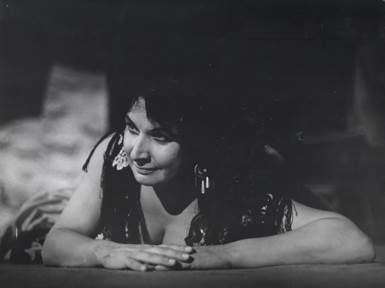
Georges Bizet’s Carmen at Poznań Opera, 1970
Aleksandra Imalska in her lauded portrayal as Carmen
1971, February 19. Prize-winner of the City and Province of Poznań in the field of dissemination of culture.
1972, April 9, Poznań Opera premièred the comic opera in 4 acts by Karol Kurpiński’s The Palace of Lucifer (“Pałac Lucyfera”) in the role of Wojewodzina (Voivode’s wife) , opposite Edward Kmieciewicz as Wojewoda (Voivode -“The governor of the province”); Mieczysław Nowakowski (conductor), Jan Kulma (stage director), Joanna Kulmowa (libretto), Andrzej Sadowski (scenography), and Henryk Konwiński (choreography).
On Octobre 16, 1972, Jan Kulaszewicz became the Artistic Director of Poznań Opera, the post he held until 1978.
1972, November 14, Poznań Opera presented 1963 revival of Verdi’s Aida with Aleksandra Imalska as Amneris.
The cast included: Marian Kouba (Radamès), Antonina Kawecka (Aida), Henryk Łukaszek (The King of Egypt), Jan Czekay (Amonasro), and Andrzej Kizewetter (Ramfis); Jan Kulaszewicz (conductor), Sławomir Żerdzicki (stage director), Stanisław Bąkowski (scenography), and Przemysław Śliwa (choreography).
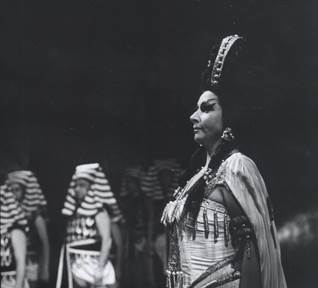
Giuseppe Verdi’s Aida, Poznań Opera, 1972
Aleksandra Imalska as Amneris. Poznań Opera Archive
1973-1975. East Berlin’s KOMISCHE OPER. Aleksandra Imalska remained on the roster after her applauded performances as Preziosilla, the young gypsy in Verdi’s La Forza del Destino, produced by Joachim Herz in 1971.
1973, December 1, Poznań Opera presented Ponchielli’s La Gioconda in the role of Laura Adorno with Antonina Kawecka/Krystyna Kujawińska (Gioconda), Marian Kouba/Stanisław Romański (Enzo Grimaldo); Jan Kulaszewicz (conductor) and Danuta Baduszkowa (stage director).
1974, February 17, OPERA NARODOWA - The Grand Theatre in Warsaw: Guest appearances as Venus in Richard Wagner’s Tannhäuser, opposite Edmund Kossowski, Roman Węgrzyn, Andrzej Hiolski, Zdzisław Klimek, and Leonard Mróz, conducted by Antoni Wicherek and Antoni Wit, and choreographed by Witold Gruca.
(The May 13, 1967, Poznań Opera production of Tannhäuser under Robert Satanowski, the role of Venus was sung by Alicja Dankowska).
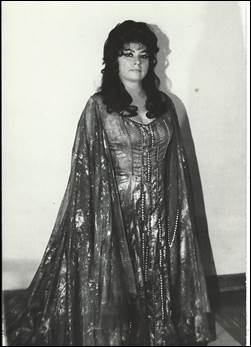
Wagner’s Tannhäuser, National Opera, Warsaw, 1974
Aleksandra Imalska as Venus. Photo courtesy of Andrzej Imalski
1975, February 6, OPERA NARODOWA - The Grand Theatre in Warsaw: Guest appearances as Mistress Quickly in Verdi’s Falstaff, opposite Jerzy Artysz/Włodzimierz Denysenko (Falstaff), Zdzisław Klimek/Jerzy Kulesza (Ford); Kazimierz Kord (conductor), Regina Resnik (stage director), Arbit Blatas (scenery), and Zbigniew Strzałkowski (choreography).
1975, December 31, Poznań Opera presented 1955 revival of Johann Strauss’s The Gypsy Baron in the role of Czipra, featured: Józef Kolasiński (Count Peter Homonay), Bogdan Ratajczak (Conte Carnero), Marian Kouba (Sándor Barinkay), Henryk Łukaszek (Kálmán Zsupán), Krystyna Kujawińska (Saffi)), and Krystyna Pakulska (Arsena); Mieczysław Dondajewski (conductor), Danuta Baduszkowa (stage director), Stanisław Bąkowski (scenography), and Władysław Milon (choreography).
1977 Polish documentary filmmaker and screenwriter, Robert Sando directed a short film entitled Carmen po polsku (“Carmen in Polish”) with soundtrack from Bizet’s Carmen, performed by Poznań Opera orchestra and chorus under Jan Kulaszewicz, starring Aleksandra Imalska as Carmen, Marian Kouba as Don José, Stefania Kondella as Frasquita, and Ewa Werka as Mercédès. Its content and the guiding idea was to show the amazing abilities of smugglers during the customs clearance at Warsaw Okęcie Aeroport. A dark hair Polish tourist maneuvered her long white shawl to hide the contents and lured handsome customs officer when she embarked on the plane to Istanbul while other passengers had to declare a dozen banned goods and forbidden quantities of cigarettes, oversized Nivea creams, crystal carafes, vases, cutlery sets, and towels (“not new, but well ironed”). After returning, the same tax collector confiscated illegally imported pieces of gold jewelry from a Polish tourist, disguised in a blond wig.
At the beginning of the film, the singing gypsy ensemble taunts and mocks the customs agents: Quant au douanier, c’est notre affaire! Tout comme un autre, il aime à plaire, il aime à faire galant.” It follows with Aleksandra Imalska’s: Je vais danser en votre honneur…”, accompagnied with castagnettes; then the curtain opens on the wild, rocky passes in the mountains, which is the contrabandists retreat, and ended when Carmen contemptuously throws down the ring given her by Don José in the final scene: Pour la dernière fois, démon, veux-tu me suivre? Non! Non! Cette bague, autrefois, tu me l’avais donnée…Tiens!
The 15 min. documentary closes with quoted words addressed to the production staff by Ryszard Z: Each time, when I am next to the customs official, I feel like a criminal. I am scared: even though I don’t smuggle anything. Why?
And by the customs official: If I have to check someone else’s luggage, I feel like an intruder, uninvited to the sleeping room. But, I must.
For those interested, please see clip below
Aleksandra Imalska cameo appearance at 12:32-12:40
1977, March 5, OPERA SLĄSKA - Silesian State Opera in Bytom: Guest appearances as the Countess in Tchaikovsky’s Pique Dame, featured the company’s leading singers, under the baton of Napoleon Siess and in the stage direction by Maria Fołtyn.
1977, December 29, Poznań Opera premièred Britten’s A Midsummer Night’s Dream in the role of Hipolita.
The leading opera soloists completed the cast under the baton of Agnieszka Duczmal, in collaboration with Zygmunt Kamiński (stage direction and choreography), Danuta Baduszkowa (production design), Stanisław Bąkowski (scenography), and Joanna Kulmowa (translation into Polish).
1978, August 17-30. During the recording session at the National Philharmonic in Warsaw of Stanisław Moniuszko’s Straszny Dwór (The Haunted Manor), conductor Jan Krenz was at the podium with the Radio and Television Orchestra and Chorus of Cracow. The entire recording head-lined distinguished Polish artists, such as Andrzej Hiolski (Miecznik), Bożena Betley-Sieradzka (Hanna), Wiera Baniewicz (Jadwiga), Wiesław Ochman (Stefan), Leonard Mróz (Zbigniew), Aleksandra Imalska (Cześnikowa), Zdzisław Nikodem (Damazy), Andrzej Saciuk (Skołuba), Florian Skulski (Maciej), Kazimierz Dłucha (Grześ), and Anna Witkowska (in double role as Marta and as Stara niewiasta -“An old woman”).
An earlier vinyl recording on “Rodolphe” label was followed by the Polish edition on LP-Muza. The 2003 digitally transferred complete Moniuszko CD set is available for purchase at Tower Records and Amazon.
On September 1, 1978, Mieczysław Dondajewski became the new Artistic Director of Poznań Opera. He led the company for the next fifteen years, followed by three years direction of Władysław Radomski (1992-1995), and by fourteen years of successful direction by Sławomir Pietras (1995-2009). However, during the years, almost every decision about changing the direction of an artistic institution immediately affected theatre ensemble with sometimes controversial (or intriguing) changes of existing artistic personal.
1978, December 17, Poznań Opera premièred Wagner’s Lohengrin in the role of Ortrud. The cast included, among others: Edward Kmiciewicz/Jerzy Ostapiuk (Heinrich der Vogler), Marian Kouba/Józef Kolasiński (Lohengrin), Milko Kasabov/Janusz Temnicki (Friedrich of Telramund), Krystyna Kujawińska/Bożena Porzyńska (Elsa of Brabant), and Antonina Kawecka as a substitute Ortrud; Edwin Kowalski (conductor), Erich Witte (stage direction), and Wolf Hochheim (set design). Translated into Polish by poet Jerzy Zagórski.
1979 Recipient of the Knight’s Cross of the Order of the Rebirth of Poland (Krzyż Kawalerski Orderu Odrodzenia Polski) for outstanding achievement and contribution to the arts.
1979, September 16, Poznań Opera première of Arthur Honegger’s Jeanne d’Arc au bȗcher (Joan of Arc at the Stake) as Catherine. Polish actress, Ewa Błaszczyk performed the challenging speaking role of Joan of Arc, opposite Andrzej Łapicki, Polish celebrated actor in the role of Brother Dominique. Antonina Kowtunow and Barbara Mądra appeared as The Virgin, and Bożena Porzyńska as Marguerite. Conductor Mieczysław Dondajewski led the orchestra and opera chorus (including children’s choir). Ryszard Peryt production was based on Adam Hanuszkiewicz famous concept, in stage setting by Andrzej Sadowski and choreographed by Henryk Konwiński. Maria Serga-Nowosad translated Paul Claudel’s libretto into Polish.
1979, November 5, Poznań Opera Main Auditorium. Aleksandra Imalska Recital.
En evening of Verdi and Verismo arias. (No detailed program is available.)
1980, January 27, Poznań Opera presented Puccini’s Il Trittico (The Triptych) in the role of Frugola (Il Tabarro), the Princess (Suor Angelica), and Zita (Gianni Schicchi). The opera’s vocal ensemble completed the cast, under the baton of Mieczysław Dondajewski, and in stage setting by Jerzy Juk Kowarski and Michał Kowarski.
1980, July 1-5. During the Stagione Lirica at Macerata Opera Festival in the Arena Sferisterio, Poznań Opera presented an open-air performances of Mussorgsky’s Khovanshchina with Aleksandra Imalska as Marfa, under the baton of Mieczysław Dondajewski, in stage direction by Sławomir Żerdzicki, and choreographed by Teresa Kujawa. There were just a few cast changes from the previous 1969 première. The program completed with Tchaikovsky’s The Nutcracker.
1984, January 14, Poznań Opera performed the musical by Jerry Bock Fiddler on the Roof in the role of Golde.
Based on Tevye and his Daughters by Sholem Aleichem, the lead character of Tevye, a Jewish milkmen, was sung by Edward Kmiciewicz and Janusz Temnicki, with Ewa Werka, Ewa Wyrzykowska, Danuta Trudnowska, Maria Czyżak, and Krystyna Frąckowiak as their daughters, under Mieczysław Dondajewski musical direction, Jan Maciejewski staging direction, in set designed by Marian Kołodziej, and choreographed by Borys Slovak. The lyrics by Sheldon Harnick were translated into Polish by Antoni Marianowicz.
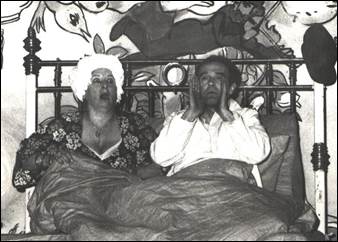
Aleksandra Imalska as Golde, Tevye’s wife. Poznań Opera, 1984
1984, March 20, Poznań Opera premièred Maurice Maeterlinck’s Les Aveugles (The Blind) in the role of The Oldest blind woman, joined by a chorus of the imaginary blind characters. Adapted from the 1890 one-act play, the cast sung chords composed by Poznań composer Jan Astriab, under musical direction by Antoni Graf. The part of their dying leader, the Priest was sung by Tadeusz Drzewiecki. Joanna Kozłowska performed the role of a Young blind woman with a child. In the finale, a hymn to the light announced the triumph over blindness and the victory over all darkness. Lech Terpiłowski designed the stage setting, and poet Zenon Przesmycki transcribed the libretto.
1986, October 11, OPERA NOVA - National Opera in Bydgoszcz: Guest appearances as Anne of Bohemia, Duchess of Silesia, in the 3 act opera by Polish composer Henryk Swolkień Przemysław II (Przemyśl II), the Duke of Poznań and King of Poland, based on a drama by Roman Brandstaetter, opposite Elżbieta Stengert as Ludgarda of Mecklenburg (Przemyśl’s first wife), and Joanna Zakrzewska-Kucharska as Margaret of Brandenburg (Przemyśl’s second wife). Mieczysław Dondajewski and Zbigniew Staniszewski shared the baton, in stage direction by Sławomir Żerdzicki.
1995, December 2, Poznań Opera presented the musical in 2 acts by Katarzyna Gaertner An Enchanted Ball, or Dwarfs, Dwarfs (“Zaczarowany bal, czyli Krasnoludki, Krasnoludki”) in the role of Macocha (“Stepmother”).
Based upon popular fairy tales, the colorful show, full of movement, waltz dances and rock music was adapted by poet Tadeusz Kijonka. The role of the “Director of the Theatre” was sung by Wiesław Bednarek and Janusz Tomnicki. The role of Director’s Secretary – an enchanted Fairy was sung by Antonina Kowtunow and Izabella Turhan. The parade of the “Theatre Artists”, Witches, Dwarfs, Queens and Kings, Cinderella, Snow White, Little Red Riding Hood, Hansel and Gretel, Puss in Boots, Wolf, Dragon, and even Talking Perrot and a Flying Teapot completed the show. Antoni Graf was responsible for musical direction and Maria Wałcerz for stage direction, in set designed by Ryszard Kaja, and choreographed by Teresa Kujawa.
1999, October 8, Poznań Opera presented opera in 4 acts by Jan Stefani’s The Supposed Miracle, or Cracowians and Mountaineers (“Cud mniemany, czyli Krakowiacy i Górale”) in the role of Stara Baba (“Old Baba”). The supporting cast included: Piotr Liszkowski/Andrzej Ogórkiewicz (Bartłomiej, the miller), Zuzanna Foremska/Roma Jakubowska-Handke/Agnieszka Kozłowska (Basia, miller’s daughter), Gabriela Klima/Agnieszka Sobocińska/Maryla Rodowicz (Dorota, miller’s wife), Piotr Friebe/Piotr Rafalko/Marek Szymański (Stach, Basia’s fiancé), and Jerzy Fechner/Janusz Temnicki (Uncle Wawrzyniec, the speaking role); Maciej Wieloch (conductor), Krzysztof Kolberger (stage director), Ryszard Kaja (scenography), Teresa Kujawa (choreography), Wojciech Młynarski and Antoni Marianowicz (couplets), in the contemporary adaptation by famous poet and writer Ernest Bryll.
It is a story about two villagers, Basia, and Stach, her Cracowian’s fiancé, and their wishes to get married.
(It should be noted, that both operas: Jan Stefani’s 4 acts The Supposed Miracle, or Cracowians and Mountaineers, based on 1974 libretto by Wojciech Bogusławski (called “the father of Polish theatre”), and Karol Kurpiński’s 3 acts Superstition, or Cracowians and Mountaineers (adapted by Jan Nepomucen Kamiński) belong to the canon of national classics and made use of Polish folkloric music in the mid-19 century).
Aleksandra Imalska’s engagement as a leading mezzo-soprano ended with Poznań Opera in 2001.
Moreover, fluent in Italian, French, Russian, and German, she became well-recognized as operatic and concert singer with guest appearances throughout European opera houses, festivals, and concert-halls. In 1967 she was on artistic tour in the former Soviet Union, performing at the Bolshoi Opera Theatre in Tashkent (Uzbekistan), and in Alma-Ata (Kazakhstan), including guest appearances as Verdi’s Amneris in major opera houses in Russia.
Since 1970 she had collaborated with the Komische Oper in Berlin and joined the roster at the beginning of 1973.
In 1973, on February 19 and 20, Aleksandra Imalska premièred the alto part in the oratorio “De Revolutionibus’ composed by Tadeusz Paciorkiewicz, adapted from an ancient text by Stefan Poloma. On the occasion of Nicolaus Copernicus 500th Anniversary, Janusz Przybylski conducted the National Philharmonic Orchestra in Olsztyn with soloists: Bożena Betley (soprano), Roman Werliński (tenor), Leonard Mróz (bass), Andrzej Chorosiński (organ), and Aleksander Bardini (narrator), joined by the Poznań Boys’ Choir under Jerzy Kurczewski.
In 1973 she sang in Milan “The Field of The Dead” in Sergei Prokofiev cantata “Alexander Nevsky”, composed for the 1938 film, under the same title by Sergei Einstein with text by Russian poet Vladimir Lugovsky.
In 1969, after leaving Poznań Opera, Robert Satanowski became the General Music Director at the United Municpal Theatres in Krefeld and Mönchengladbach, the post he held until 1976. At that time, Aleksandra Imalska was a frequent guest artist appearing in opera and as soloist with the Krefeld Lower Rhine Symphony Orchestra. Under direction of Robert Satanowski, she performed “Das Lied von der Erde” (The Songs of the Earth) by Gustaw Mahler, including “Der Einsame in Herbst” (The lonely one in autumn), and “Von der Schönheit” (Of beauty). She also sang the alto part in the oratorio by Karol Szymanowski “Stabat Mater”, derived from the Latin by poet Józef Jankowski.
In 1984, on March 23 and 24, at the National Philharmonic in Warsaw, the Poznań Opera performed the concert version of Honegger’s oratorio “Joan of Arc at the Stake,” under musical direction by Mieczysław Dondajewski, joined by the Poznań Boys’ Choir under Jerzy Kurczewski. Aleksandra Imalska repeated her original role from 1979 as Catherine with Ewa Błaszczyk as Joan of Arc, Krzysztof Kolberger as Brother Dominique, Antonina Kowtunow as The Virgin, and Krystyna Kujawińska as Marguerite.
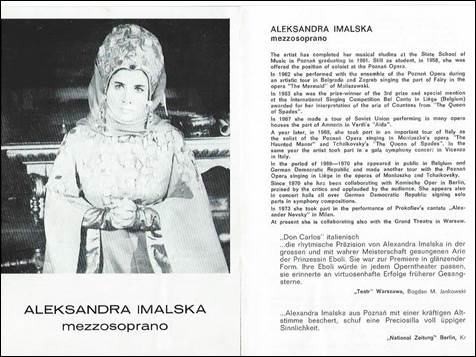
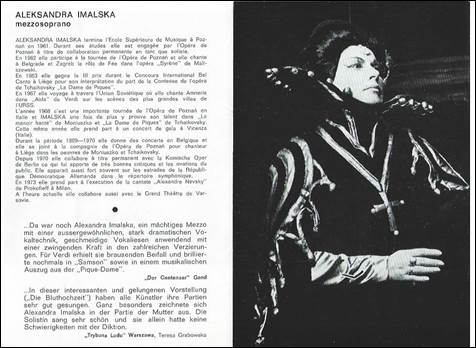
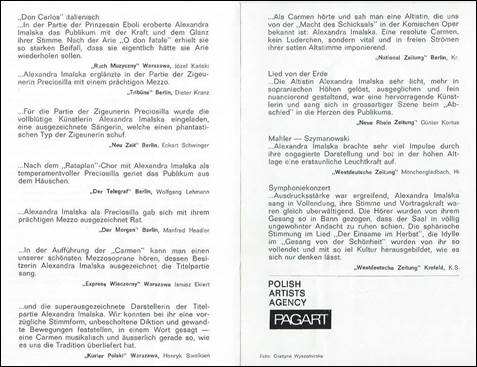
Aleksandra Imalska prospect issued by Polish Artists Agency PAGART. Warsaw, 1970s
Courtesy Liliana Osses Adams collection
An elaborate, competitive and creative life, hindered by health problems, came to the end on Wednesday, February 26, 2014, at the age of 81. Aleksandra Imalska-Jankowiak reposes beside her husband, conductor Roman Jankowiak at Junikowo Cemetery in Poznań.
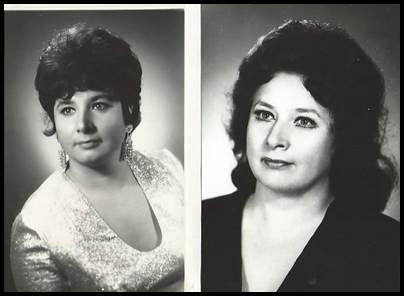
Aleksandra Imalska in photos given to me on February 23, 1990
Courtesy Liliana Osses Adams
Acknowledgements:
I wish to express my sincere gratitude to archivist Tadeusz Boniecki and his assistant Marta Michocka for giving me access to their meticulously maintained Poznań Opera Archive and for their kind responses to my queries.
I also wish to express my “Thank you” to Andrzej Imalski for sending additional photos of Aleksandra and for our long phone calls in remembrance of her.
I would like to gratefully acknowledge Rudi Van den Bulck, editor of Opera Nostalgia for his continuous support; in particular I would like to thank him for his announcement on Aleksanda Imalska (courtesy of Manfred Krugmann).
Postscript
Poznań Opera House, the city’s well known landmark, was designed by German architect Max Littmann as the Posen Opernhaus. After the final completion of the building in 1910, the cornerstone inscription “… on this stage Polish words shall never be heard…” was unveiled.
The following history of over one-hundred-years tells us that it was not always meant to be!
During the last two years of WWII, the Poznań Opera Theatre served as a hospital for wounded German soldiers.
From the beginning of February 1945 my late Father with a large group of volunteer artists, singers, musicians, and technicians worked tirelessly in cleaning up the building from debris and cadavers. On June 2, 1945, Poznań Opera reinstated its post-war activities with Karol Kurpiński’s Superstition, or Cracowians and Mountaineers.
I take the liberty in sharing the picture taken during the first 1945 performances at Poznań Opera, which has become an important document of the past. It shows the final scene of “reconciliation” between two-ethnic groups of the southern region, Cracowians and Mountaineers, when Bartłomiej, the miller, and his wife Dorota greeted the guests with a bread and salt offering, the traditional Slavic welcome gesture of friendship and hospitality.
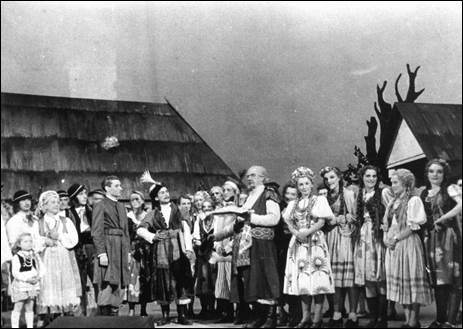
Karol Kurpiński’s Superstition, or Cracowians and Mountaineers, Poznań Opera, 1945
Courtesy Liliana Osses Adams collection
The première cast, under the musical direction by Zygmunt Wojciechowski, included: Hugo Zathey (Bartłomiej), Maria Janowska-Kopczyńska (Dorota, Basia’s stepmother, who got a crush on the young Stach), Zofia Fedyczkowska (Basia), Radzisław Peter (Stach), Zygmunt Mariański (Brandys, the Mountaineer, to whom Dorota promised to handover Basia), Bolesław Horski (Miechodmuch, the organist), Stanisław Winiecki (Bardos, a student from Cracow, who knew Latin and vainly hoped to be a mediator in the neighbors dispute, ended with a heavy fight), Władysław Bratkiewicz (Ekonom - “The Land-Steward”), Eugeniusz Janicki (uncle Wawrzyniec, the speaking role), completed with the choir ensemble of Cracowians and Mountaineers. The ballet ensemble featured the following soloists: Helena Kwaśniewska, Maria Altmanówna, Nina Grzegorzewska, Małgorzata Kassówna, Stanisław Miszczyk, and Bronisław Mikołajczak. Conductor Zygmunt Wojciechowski, who helped to clean up the theatre (and who directed Poznań Opera during 1929-1933 and again from February 25, 1945 until November 1, 1945, succeeded by Zygmunt Latoszewski during 1933-1939 and again from November 2, 1945 until the end of 1948), assembled the opera orchestra of local musicians from the Conservatory of Music and Poznań Philharmonic, to name a few: Tadeusz Szulc (concertmaster), Leszek Rezler (violin), Jan Rakowski (viola), Wacław Rozmarynowicz (cello), Adam Bronisław Ciechański (double bass), and harpist Janina Rogozińska (my first harp teacher).
There were seventy-four performances in 1945 and sixteen in 1946, created from the music scores and costumes borrowed from Cracow, in stage direction by Bolesław Horski, in scenery by Zygmunt Szpingier, choreographed by Stanisław Miszczyk, and in costumes redesigned and refreshed by Stefan Janasik at opera’s workshop.
Please take a look at the picture’s left corner: Behind Primadonna Zofia Fedyczkowska, as Basia (the role she reprised from 1924 Poznań Opera production), is my Father, who studied voice under her tutelage and retired in 1975, after thirty years as bass-baritone chorister, having sung some comprimario roles as well. Finally, at far left, it’s me, when in a dress sewed by my Mother, I played the role of a little krakowianka, and was the first child, who appeared on the opera stage in liberated Poland… where it all began.
© Liliana Osses Adams
California, May - June 2014
For additional information or questions, please email harpliliana@comcast.net